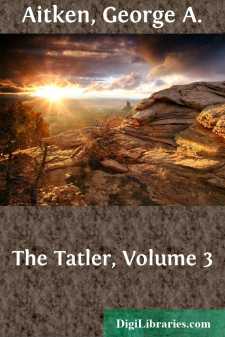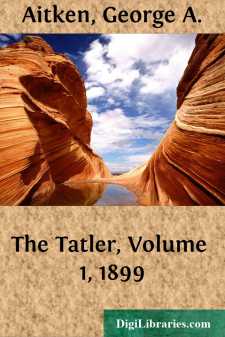Categories
- Antiques & Collectibles 13
- Architecture 36
- Art 48
- Bibles 22
- Biography & Autobiography 813
- Body, Mind & Spirit 142
- Business & Economics 28
- Children's Books 15
- Children's Fiction 12
- Computers 4
- Cooking 94
- Crafts & Hobbies 4
- Drama 346
- Education 46
- Family & Relationships 57
- Fiction 11828
- Games 19
- Gardening 17
- Health & Fitness 34
- History 1377
- House & Home 1
- Humor 147
- Juvenile Fiction 1873
- Juvenile Nonfiction 202
- Language Arts & Disciplines 88
- Law 16
- Literary Collections 686
- Literary Criticism 179
- Mathematics 13
- Medical 41
- Music 40
- Nature 179
- Non-Classifiable 1768
- Performing Arts 7
- Periodicals 1453
- Philosophy 64
- Photography 2
- Poetry 896
- Political Science 203
- Psychology 42
- Reference 154
- Religion 513
- Science 126
- Self-Help 84
- Social Science 81
- Sports & Recreation 34
- Study Aids 3
- Technology & Engineering 59
- Transportation 23
- Travel 463
- True Crime 29
George A. Aitken
George A. Aitken was a British writer and editor, known for his scholarly work on 18th-century English literature. He is particularly recognized for his authoritative edition of "The Tatler", a publication co-founded by Richard Steele, which Aitken edited and annotated. Aitken also published biographies and studies on notable literary figures, including Jonathan Swift and Thomas Chatterton. His meticulous research and editorial contributions have made him an important figure in the study of English literary history.
Author's Books:
Sort by:
by:
George A. Aitken
My Lord, After having long celebrated the superior graces and excellences among men, in an imaginary character, I do myself the honour to show my veneration for transcendent merit, under my own name, in this address to your lordship. The just application of those high accomplishments of which you are master, has been an advantage to all your fellow subjects; and it is from the common obligation you...
more...
by:
George A. Aitken
Introduction When the first number of the Tatler appeared in 1709, Steele and Addison were about thirty-seven years of age, while Swift, then still counted among the Whigs, was more than four years their senior. Addison and Steele had been friends at the Charterhouse School and at Oxford, and though they had during the following years had varying experiences, their friendship had in no way lessened....
more...



